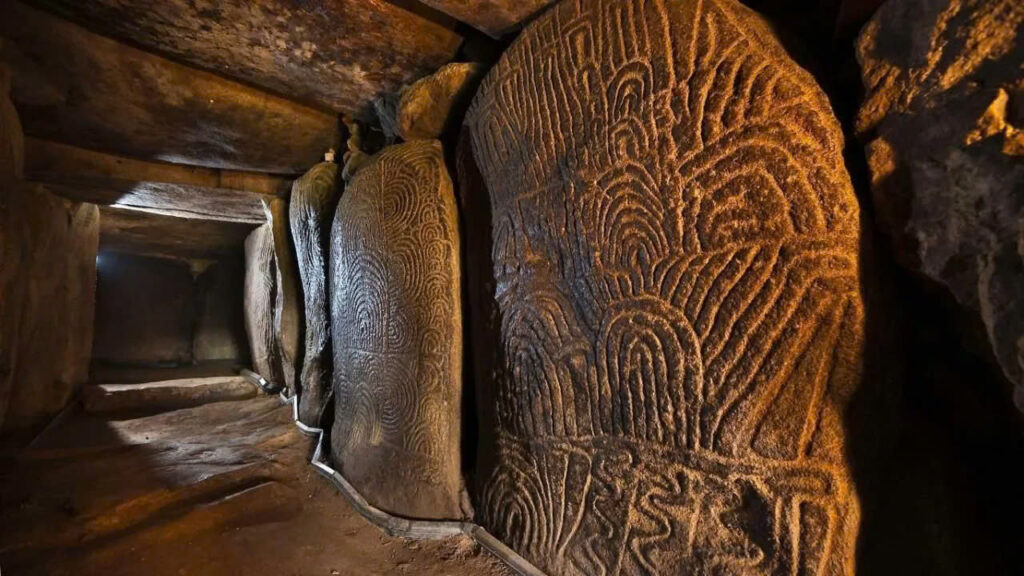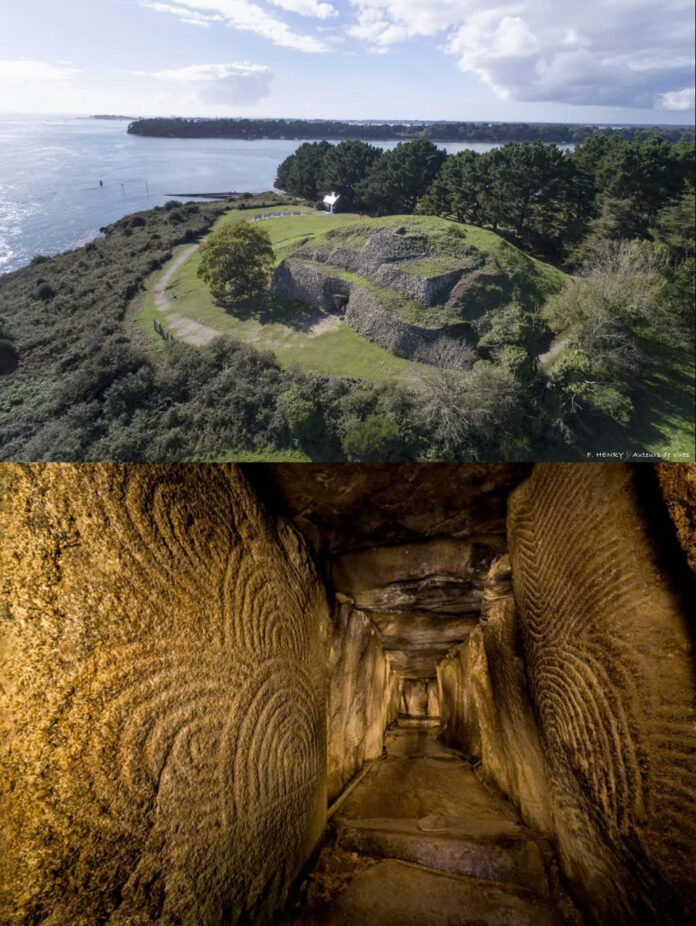A Historical Journey Through Time

In the heart of France’s Gulf of Morbihan lies one of humanity’s most intriguing archaeological treasures – the Gavrinis Passage Tomb. Though less famous than its Irish cousin Newgrange, this remarkable Neolithic monument stands as a testament to our ancestors’ architectural and artistic prowess.
Discovery and Archaeological Significance

The tomb remained untouched for thousands of years until its chance discovery in 1835. While initial investigations were sporadic, the 1980s marked a turning point when archaeologist Charles-Tanguy Leroux began systematic excavations. Carbon dating revealed the structure’s construction around 3,500 BC, making it several centuries older than the renowned Newgrange monument.
Architectural Marvel and Artistic Excellence

The tomb’s centerpiece is an impressive burial chamber, reached through a 14-meter passage. What makes Gavrinis truly extraordinary are its 29 elaborately carved stone slabs, crowned by a massive 17-ton ceiling stone. Intriguingly, this ceiling shares connections with nearby tombs like Table des Marchand and Er Vinglé, suggesting a complex network of Neolithic construction.
Mysterious Symbolism and Hidden Messages

The passage walls tell silent stories through intricate carvings and abstract patterns. Scholars debate whether these symbols represent everyday objects or perhaps fragments of an ancient, forgotten language. The discovery that these stones bear decorations on both sides has led to fascinating theories about their previous use in other structures.
Astronomical Alignment and Sacred Purpose

Like its Irish counterpart, Gavrinis demonstrates our ancestors’ sophisticated understanding of celestial movements. During the winter solstice, sunlight penetrates the passage to illuminate the chamber’s rear wall, creating a spectacular display of light and shadow. Mysterious features, including stones with multiple perforations, mirror similar elements found at Newgrange.
Video
Preservation Through Time
Nature itself became Gavrinis’s guardian, as accumulating sand and vegetation preserved the structure for millennia. Originally part of the mainland, rising sea levels gradually transformed the site into an island sanctuary, adding another layer to its mystique.
A Window into Neolithic Life

Today, Gavrinis stands as more than just a monument – it’s a portal to our past. Its pristine artistry and engineering raise compelling questions about Neolithic society, beliefs, and capabilities. Each visit offers a unique opportunity to step back in time and contemplate the remarkable achievements of our ancient ancestors.
For those seeking to unlock the mysteries of human prehistory, Gavrinis Passage Tomb provides an unparalleled glimpse into the sophisticated world of our Neolithic forebears, where art, architecture, and astronomy merged to create something truly extraordinary.

